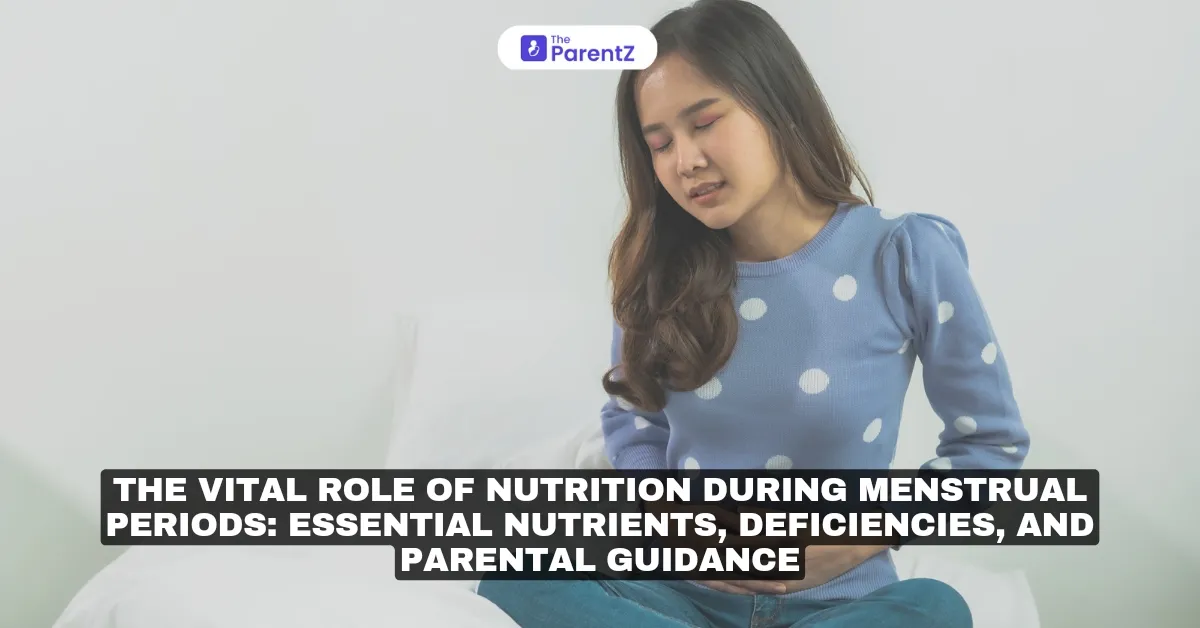Good nutrition is essential for overall health, but during menstruation, the body’s requirements become even more specific and pronounced. The menstrual cycle, with its hormone fluctuations and physical symptoms, can lead to increased demands for certain nutrients. Many women experience symptoms like fatigue, cramps, mood swings, and bloating, often worsened by nutrient deficiencies.
The Importance of Nutrition During Menstruation
Nutrition plays a crucial role in alleviating menstrual symptoms. An adequate intake of vitamins and minerals can reduce cramps, improve energy levels, stabilize mood, and support overall reproductive health. Hormonal fluctuations during menstruation lead to increased nutritional demands, and deficiencies can exacerbate symptoms like pain and fatigue. By addressing these nutrient needs through a balanced diet, women can support their bodies and experience a more manageable cycle.
Common Nutrient Deficiencies During Menstruation and Their Effects
1. Iron Deficiency
• Role: Iron is essential for producing hemoglobin, a component of red blood cells responsible for transporting oxygen throughout the body.
• Deficiency Effects: Iron deficiency, common due to blood loss during menstruation, leads to symptoms like fatigue, weakness, dizziness, and headaches.
• Sources: Foods rich in iron include spinach, lentils, beans, fortified cereals, nuts, and dark leafy greens.
2. Vitamin B6 Deficiency
• Role: Vitamin B6 helps produce serotonin, which regulates mood, and supports overall brain health.
• Deficiency Effects: Lack of vitamin B6 can contribute to irritability, mood swings, and depression.
• Sources: B6 can be found in chickpeas, potatoes, bananas, and fortified cereals.
3. Magnesium Deficiency
• Role: Magnesium is known to relax muscles, making it effective in reducing cramps and improving sleep quality.
• Deficiency Effects: Insufficient magnesium can lead to increased cramping, irritability, and fatigue.
• Sources: Include magnesium-rich foods such as nuts, seeds, leafy greens, and whole grains in the diet.
4. Calcium Deficiency
• Role: Calcium plays a key role in bone health and can also help manage mood and reduce physical discomfort during menstruation.
• Deficiency Effects: Lack of calcium may worsen PMS symptoms like mood swings, headaches, and bloating.
• Sources: Calcium is found in dairy products, leafy green vegetables, almonds, and fortified plant-based milk.
5. Omega-3 Fatty Acids Deficiency
• Role: Omega-3s possess anti-inflammatory properties, which can alleviate menstrual pain and support mental well-being.
• Deficiency Effects: Low levels of omega-3s may result in increased inflammation, making cramps more painful.
• Sources: Omega-3 fatty acids are abundant in flaxseeds, chia seeds, walnuts, and fish.
Practical Nutritional Tips for Menstrual Health
• Hydration: Drinking enough water can alleviate bloating and reduce fatigue.
• Balanced Diet: Include a mix of protein, complex carbs, and healthy fats to stabilize blood sugar and energy levels.
• Avoid Excess Caffeine and Sugar: These can increase irritability and lead to energy crashes.
Note for Parents of Young Girls
Parents play a significant role in helping young girls navigate their first menstrual cycles, which can often be overwhelming. Providing a balanced diet and educating them on the importance of key nutrients is vital. Encourage open conversations about menstrual health, ensuring they feel comfortable and supported. Teaching them to recognize and address symptoms of nutrient deficiency can set the foundation for a healthy relationship with their bodies.
Conclusion
Nutrition significantly impacts the menstrual cycle, with specific nutrients like iron, magnesium, and calcium essential for managing symptoms and maintaining overall health. Addressing these needs can ease menstrual discomfort and improve mental and physical well-being. A balanced, nutrient-rich diet, coupled with healthy habits, can empower young girls and women to manage their cycles with confidence and resilience.








Be the first one to comment on this story.